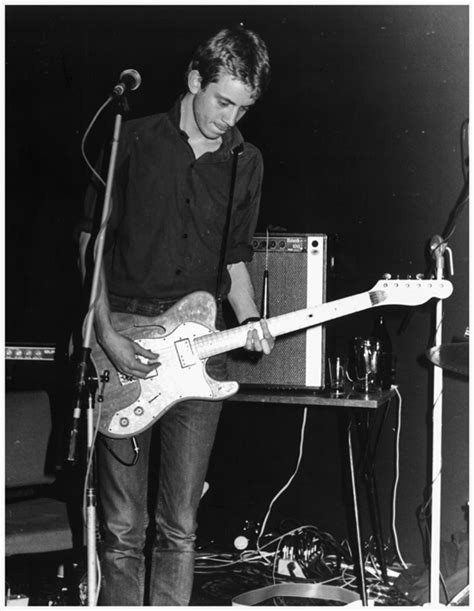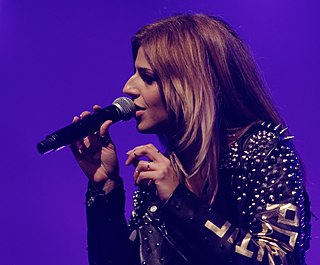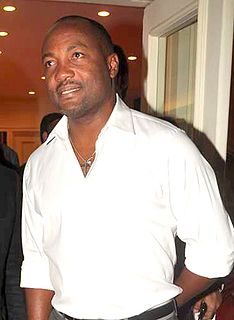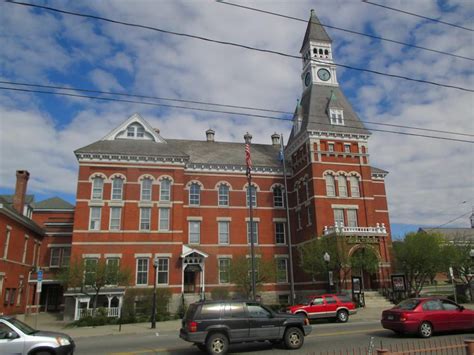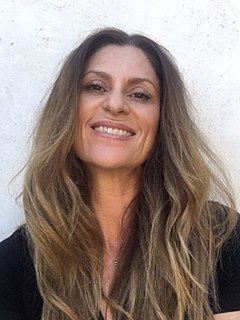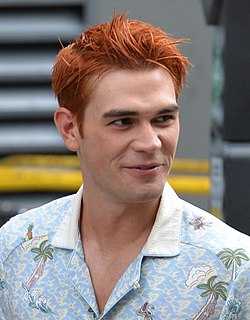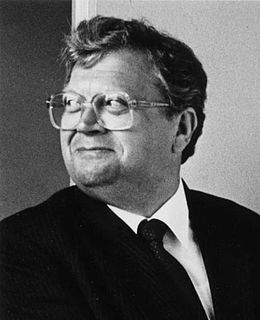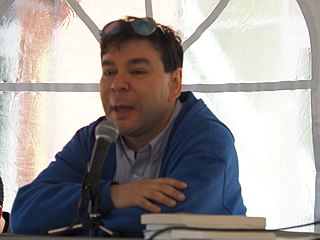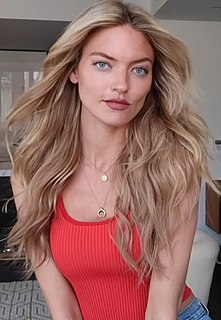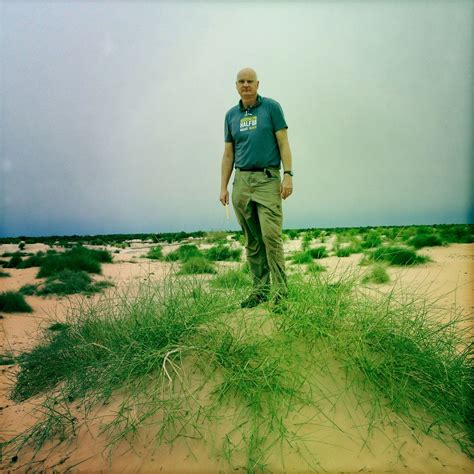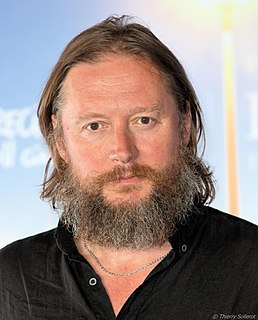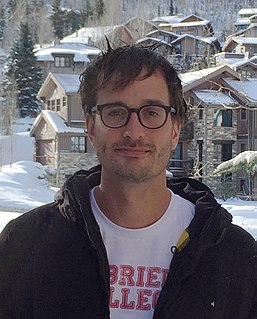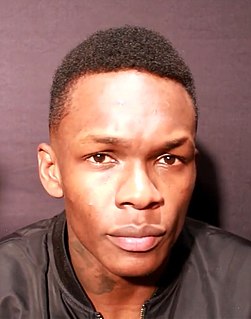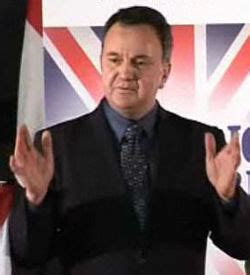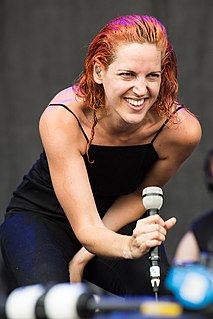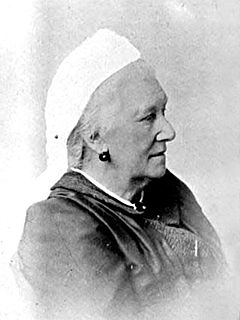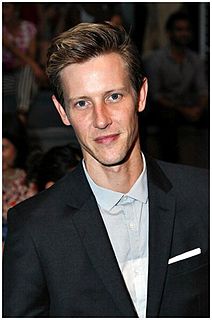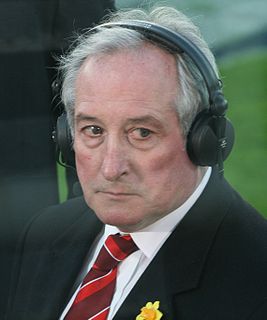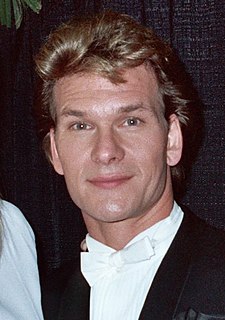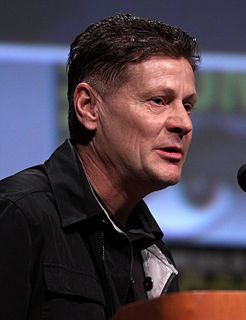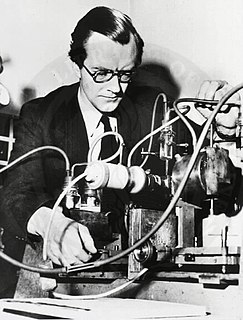Top 426 Zealand Quotes & Sayings - Page 7
Explore popular Zealand quotes.
Last updated on November 20, 2024.
In the early 1980s, the government of New Zealand fell into the hands of true believers, globalist believers, and they embraced the theory of inevitability perhaps more completely than anybody else. And it solved in the very short term some of their debt problems, but in the medium- and long-term, it left them in real economic trouble.
Obviously, it was a big life change for me and quite a shock to suddenly have these songs I'd written in my bedroom as a far-too-intense teenager all over the airwaves and see my face on buses, especially in a small country like New Zealand, but at the same time it was such a thrill and an honour knowing that my music was reaching people.
First of all my golfing experience spans all corners of the World - Brazil, New Zealand, L.A. And I think the best place is when you play with friends. I particularly enjoy playing golf with my best friend, former Manchester United player Dwight Yorke. It is the best experience when we can get together on a golf course.
I think it took us all by surprise. I mean, I knew that people in New Zealand would like [Hunt for the Wilderpeople], but no one really anticipated how much they would embrace it as it is. And it's playing widely in Australia now; they're running it as well. It's going to be interesting to see how it does it in the States, but I think if Sundance was any indication, I imagine it could do well.
I don't see myself as a crusading feminist filmmaker. Not at all. I have the luxury of coming from New Zealand and I've had moments in my life where being female is considered to be a tremendous advantage - emotionally, career-wise. Personally, I have nothing to prove. But I'm tremendously curious about human nature. Female life is so incredibly underexplored in cinema, so these stories feel very exotic.
The chattering bloody classes, or what I call the liberal Guardian readers, they're all buying SUVs to drive around London. I smile at these loons who drive their SUVs down to Sainsbury's and buy kiwi fruit, flown in from New Zealand for Christ sakes. They're the equivalent of environmental nuclear bombs!
The core of the film [Hunt for the Wilderpeople] is that relationship. Whether they're getting on or whether they're not. If that relationship works, then everything else works as well. And you kind of almost, sort of, gives into a realm of something like New Zealand magic realism... There is no world in which social work is actually pursues some kid into the woods in this manner.
Many of our ally states don't have these constitutional protections - in the UK, in New Zealand, in Australia. They've lost the right to be free from unreasonable search and seizure without probable cause. All of those countries, in the wake of these surveillance revelations, rushed through laws that were basically ghostwritten by the National Security Agency to enable mass surveillance without court oversight, without all of the standard checks and balances that one would expect.
As I flew back from New Zealand to bury my mother, it occurred to me that no matter how harrowing her loss was and how keenly it will always be felt, there was, nevertheless, a sense of relief that my father, sisters and I could say a final goodbye after the longest goodbye and relief that my mum had finally been released.
New Zealand’s nuclear free movement is a broad-based and popular movement. Our nuclear free status is a challenge to much that is accepted as orthodox in international relations. It was formally adopted in the cold war era as a form of resistance to the dismal doctrines of nuclear deterrence. It is still a rebuke to the unprincipled exercise of economic power and military might.
Know your load. That's rule numero uno in this business, which is why I make them count the penguins out in front of me one at a time. I'm not going to be the schmuck who shows up in Orlando twobirds short of a dinner party....I know I'm pulling out of Houston with exactly forty-two Gentoo penguins, seventeen Jamaican land iguanas, four tuataras from New Zealand, and a pair of rare, civet-like mammals called linsangs. No more, no less.
The biggest difference in what's going on in New Zealand versus the rest of the world, aside from the decriminalization of sex work, is that sex workers were actually part of the decriminalization process. There was a provision in that legal change stating sex workers would be part of an evaluation committee, and in 2008, they were, they were a part of the committee determining whether or not decriminalization worked. They are continually regarded as stakeholders - in their communities, but also in the legal process. That's such a different way of operating.
I have a memory of this experience when I was young, watching 'Stop Making Sense,' the Talking Heads concert movie, which is one of the best concert movies ever, and I saw it in a full house in New Zealand, and everyone was cheering between songs, and you really felt like you were part of the audience at the gig.
I remember thinking when I was younger - we used to take holidays to Spain and France, and I just thought I was never going to get further than Spain or France. I really didn't when I was younger. And then I started auditioning for 'Narnia,' and the first thing when I got the part was go straight to New Zealand, halfway around the world.
In the United States and some of the other countries involved it's sort of a "five eyes" global spying alliance. That's the US, UK, Canada, New Zealand, and Australia. They've had a little bit of a more muscular public response. Now, they haven't been satisfying or really meaningful in any country yet. But they have been engaging.
Many European countries, as well as Australia, Canada, Israel, and New Zealand, have adopted legislation that creates a 'public lending right', where the government recognises that enabling hundreds of people to read a single copy of a book provides a public good, but that doing so is likely to reduce sales of the book.
I think America is a really interesting place. In New Zealand, we don't sue each other really commonly. There's a really specific reason, like someone's arguing over a fence that's been put up that's too high. Sort of practical things. And journalists are rarely sued for things. Whereas in America, you have a culture where that's the first thing you do. There's an ongoing pattern here where if you've got money, you can bully other people into doing what you want them to do. You don't need to be in it to win, you just need to be in it to be a pest.
The promoters in New Zealand weren't looking at me, they didn't see the potential. But when I was fighting in China they brought me over there as a journeyman so all their guys could whup up on me. Then they realised that's not gonna happen because I kept whupping up on their guys. Then they decided, 'Let's bring this guy into our team.'
I took four years off after 'In the Cut' because I wanted to see who I'd be without work. I even tried being a hermit in the wilderness in New Zealand. I stayed in a warden's hut two-and-a-half hours off the Routeburn Track through the fjords on the South Island. It was early winter, so there was no electricity or running water.
Where would we be without our friends? Honestly, every friend is so unique and special. I have my friends back in New Zealand; I have my friends in New York and California. Then you have your friends who are your family. Barbara Palvin falls into that category. I have a lot of love for all my friends.
Unless legal and illegal immigration is halted and reversed, European First World nations across all of Europe from Spain to Russia, North America, Australia and New Zealand - will be destroyed and have their very culture and civilisation changed to that of the Third World. Immigration is now the single most important issue facing all First World nations, and will determine whether Western Civilisation continues to exist or not.
I'm cheaper than Anthony Hopkins. The other actors they asked to play Gandalf wouldn't go to New Zealand on that money for that length of time. I thought it would be a bit of an adventure. Tony Hopkins didn't think it would be an adventure. Tony is part of Hollywood. I'm an eccentric English actor, and there's a lot of us around.
How long are women to remain a wholly unrepresented body of the people? This is a question that has of late been agitated in England, and women in this colony read, watch, and reflect...Why should not New Zealand also lead?...Why has a woman to power to vote, no right to vote, when she happens to possess all the requisites which legally qualify a man for that right?
Quite low down in the list is "How much am I going to be paid?"... my main feeling about money is that I don`t want to feel as though I`m being taken advantage of... The other actors they asked to play Gandalf wouldn`t go to New Zealand on that money for that length of time. I thought it would be a bit of an adventure... I`m an eccentric actor, and there`s a lot of us around.
What Taika [Watiti] still bring to it [Hunt for the Wilderpeople], it really sums up what life is like in New Zealand, or what our sensibilities, our sense of humor, how we come together, how easy it would be, feels like. You know, we have a small population and so you know the bizarreness of the police getting involved in this manhunt, how the men... And then eventually, the army all get intwines.
I want good science, and I want it to be realistically marketed. I wouldn't like only two countries on the planet that allow pharmaceutical companies to market directly to people, New Zealand and the United States. It ought to be better regulated. And when it's presented to people, it ought to be presented in a way that's realistic. For example, often people will prescribe antidepressant medications, and we'll say, you have a brain disease; you'll have to be on these medications permanently. There is no biological marker for depression. It's not true that we know that it's a brain disease.
One thing I loved about New Zealand was the indoor/outdoor lifestyle of the place. I remember going from Xboxing, jamming out on guitars and drum machines in my buddy's apartment, to a bike ride through the parks and up and down the streets all over the city, to the ocean, right into the water. I remember we were swimming outer ways and we got to a certain place where we wanted to see - or I wanted to see - how deep the water was.
In New Zealand, sex workers are regarded as workers, as people who are members of the community, people who have a stake in the community - not just in the workplace, but in the broader community. They aren't objects to be controlled and regulated. They are not collateral evidence of a crime. They are human beings.
The most striking thing Snowden has revealed is the depth of what the NSA and the Five Eyes countries [Australia, Canada, New Zealand, Great Britain, and the US] are doing, their hunger for all data, for total bulk dragnet surveillance where they try to collect all communications and do it all sorts of different ways. Their ethos is "collect it all."
I really struggled moving from New Zealand to the United States. I still have very strong ties to my home, and it took me a couple of years to feel settled in Los Angeles. Fortunately, I have a great group of friends and found the places where I enjoy spending my time. Finding beaches to get to made me feel much more plugged into the environment here.
Malcolm Bradbury made the point, and I don't know whether it's a valid one or not, that the real English at the moment is not the English spoken in England or in America or even in Canada or Australia or New Zealand. The real English is the English which is a second language, so that it's rather like Latin in the days of the Roman Empire when people had their own languages, but had Latin in order to communicate.
New Zealand was such a weird place in the 1980s. For instance, we used to have this commercial in the late 1970s where this guy drives this car and stops outside a corner store. He goes in to buy something, and when he comes out, his car is gone. He's like, 'Huh?' Then a voice says, 'Don't leave your keys in the car.'
Maybe scientists are fundamentalist when it comes to defining in some abstract way what is meant by 'truth'. But so is everybody else. I am no more fundamentalist when I say evolution is true than when I say it is true that New Zealand is in the southern hemisphere. We believe in evolution because the evidence supports it, and we would abandon it overnight if new evidence arose to disprove it.
Peter Jackson was very good to me after I made my first film, he was really one of the best things that happened after that movie. I was invited to New Zealand to go hang out with him on 'The Hobbit', and so for two weeks I got to sit next to him and watch him direct, and it was the most amazing experience you could ever have.
Where would we be without our friends? Honestly, every friend is so unique and special. I have my friends back in New Zealand, I have my friends in New York and California. Then you have your friends who are your family. Barbara Palvin falls into that category. I have a lot of love for all my friends.
The one thing that has changed dramatically when you talk to the people of New Zealand and people from Ireland? They feel a darned-sight better about themselves because they made the decision to do what they've done, and I can say to you, we would feel a bloody darned sight better about ourselves once we get an opportunity to put this [vote on same-sex marriage] out there.
I've been round Japan, Hong Kong, Korea, and China in the last few months and the message that I've been taking is that New Zealand is building an up market dynamic into a connected economy. And that we are not the old-fashioned, ship mutton kind of product the people associate their export in work.
I remember performing with the Choir as an instrumentalist when I was still in school and it was wonderful to share the stage with them again more recently in Rhyl and at the opening of the Wales vs New Zealand rugby international at the Millennium Stadium. Here's wishing everyone involved in the Choir every success - I can't wait to perform with you again.
In the time of my parents, before World War One, most people who came to New Zealand from Europe were the more enterprising people; the people who were stronger mentally. It takes a certain amount of imagination to make a life on the other side of the world, the same imagination it takes to climb the tallest mountain.


